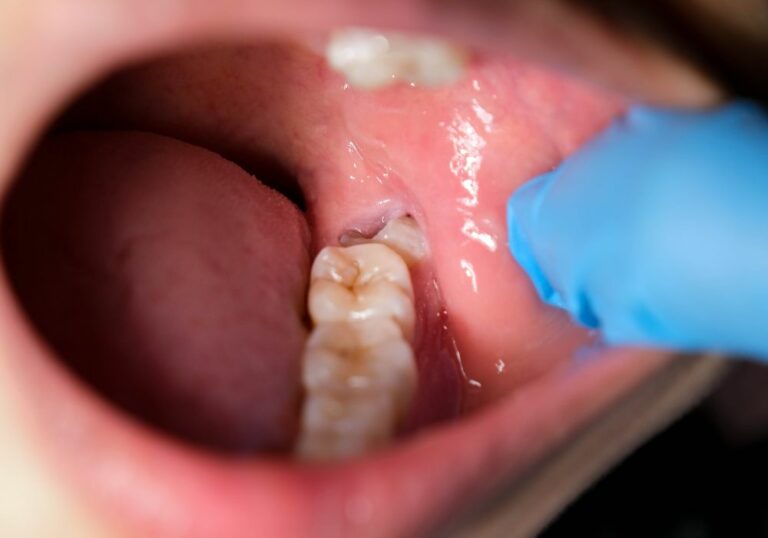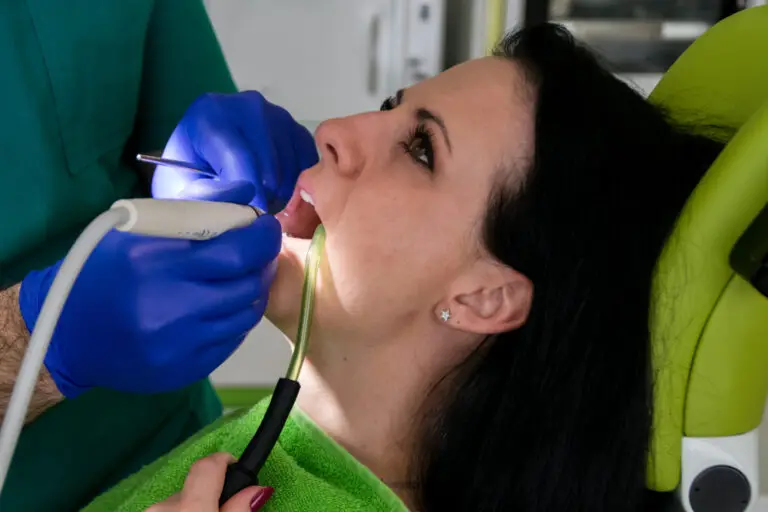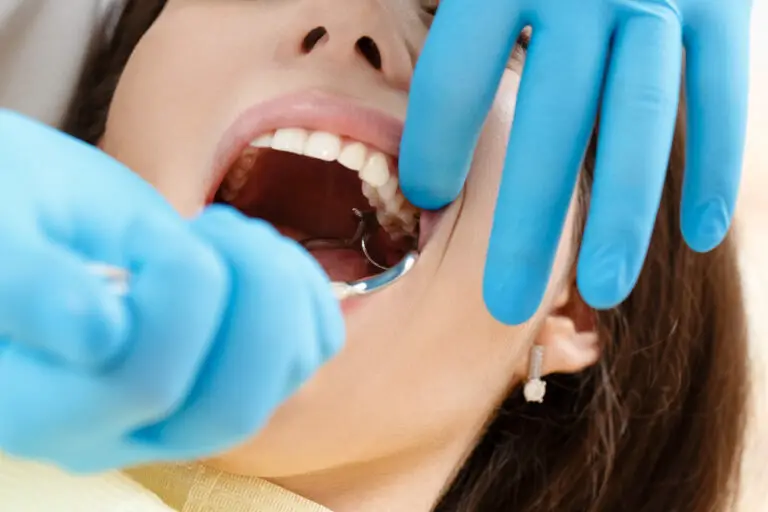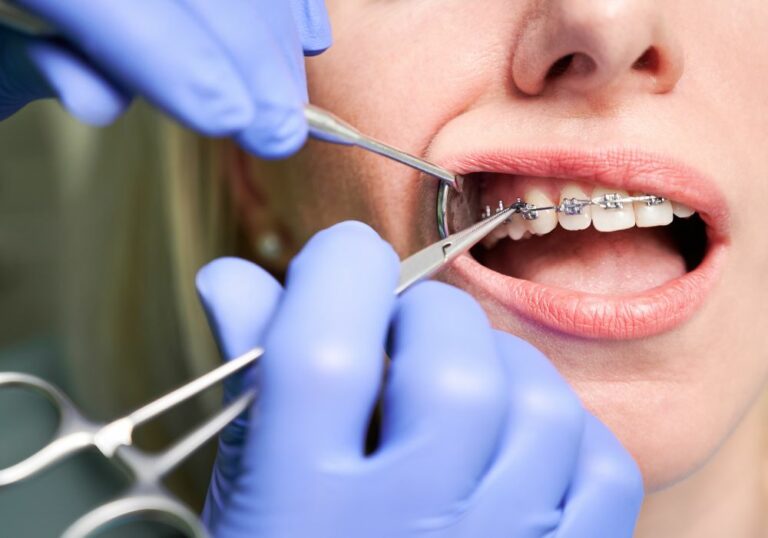High blood pressure, or hypertension, is one of the most common chronic health conditions, affecting nearly half of all American adults. It puts people at increased risk for heart attack, stroke, kidney failure, and other complications. While there are well-established risk factors for hypertension like obesity, smoking, genetics, and too much sodium intake, emerging research has suggested periodontal or gum disease may also be an important and modifiable risk factor for high blood pressure.
The link between gum disease and hypertension
Gum disease refers to a chronic inflammatory condition affecting the tissues surrounding and supporting the teeth. It’s caused by a buildup of plaque, a sticky film of bacteria. In the early stages, called gingivitis, the gums become swollen, red, and bleed easily when brushing or flossing. Without treatment, gingivitis can advance to periodontitis, which involves destruction of the gum tissue and bone loss around teeth. Periodontitis may cause teeth to loosen or even fall out.
Several large epidemiological studies have found an association between gum disease and increased incidence of high blood pressure:
- In the National Health and Nutrition Examination Survey (NHANES) study, researchers analyzed health data from over 15,000 adults ages 30 and above. They found that individuals with periodontitis had a 24-28% higher risk of being hypertensive compared to those without gum disease after adjusting for risk factors.
- A study published in the American Journal of Hypertension tracked over 41,000 healthy male professionals for 12 years. The presence of periodontal disease at the start of the study was associated with a 20% increased risk of developing incident hypertension during the follow-up period compared to those without gum disease.
- A meta-analysis compiled data from 15 studies involving more than 47,000 participants. They found that, overall, periodontitis was associated with a 22% greater prevalence of hypertension compared to no periodontitis.
While the link between gum disease and hypertension has been demonstrated, the exact mechanisms behind it are still being researched. Here are some of the ways gum disease is believed to contribute to high blood pressure:
Chronic inflammation
Periodontitis creates a state of persistent low-grade inflammation in the body. Immune cells produce inflammatory chemicals called cytokines in response to the bacterial plaque buildup. This inflammation can circulate systemically and damage blood vessels, causing them to narrow and harden. Over time, this can increase blood pressure.
Oral bacteria entering bloodstream
When gum tissue is inflamed and damaged from periodontitis, it allows harmful oral bacteria access to the bloodstream. Some species like Porphyromonas gingivalis have been found in atherosclerotic plaque. Scientists hypothesize that bacterial agents can directly infect blood vessels, trigger platelet aggregation, or induce autoimmune responses – all mechanisms leading to hypertension.
Endothelial dysfunction
The inner lining of blood vessels called the endothelium helps regulate vascular function. Gum disease triggers an excessive immune response which may cause dysfunction of the endothelial cells. This impairs the ability of blood vessels to properly dilate and constrict, which can raise blood pressure over time.
Oxidative stress
Periodontitis increases free radicals and reactive oxygen species which cause oxidative damage to cells and tissues. This oxidative stress further amplifies the inflammatory cascade and contributes to vascular changes associated with hypertension.
In summary, through chronic inflammation, circulatory bacterial toxins, vascular endothelial dysfunction, and increased oxidative stress, the presence of gum disease appears to be highly linked to increased risk for hypertension.
Treatment options for gum disease
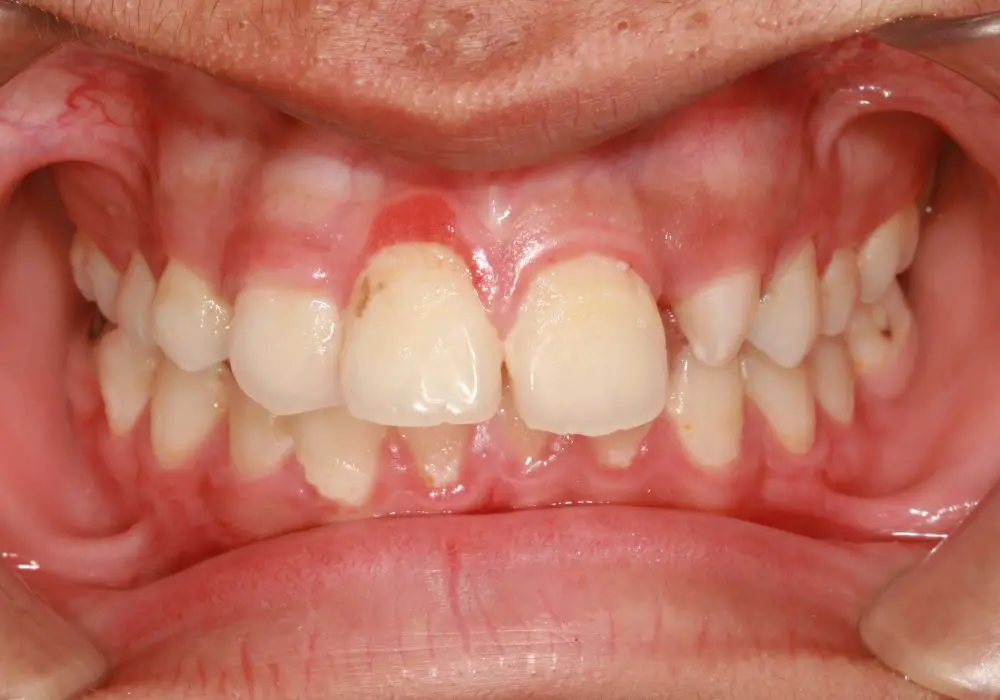
Since gum disease seems to be connected to high blood pressure, having it properly treated should be part of any management plan for hypertension. Options for professional treatment of gum disease include:
- Regular dental cleanings – Professional cleanings every 3-6 months helps reduce bacterial plaque, calculus, and risk for gingivitis. For patients with periodontitis, more frequent cleanings every 3 months may be needed.
- Scaling and root planing – This deep cleaning procedure removes hardened calculus deposits on tooth roots using specialized dental instruments. Often required in cases of periodontitis.
- Dental antibiotics – Antibiotics like doxycycline may be prescribed to kill off gum infection-causing bacteria.
- Laser therapy – Laser energy can remove diseased gum tissue and stimulate healing. Used for treatment of moderate-advanced periodontitis.
- Flap surgery – In this procedure, gums are lifted back allowing dentists to access roots and clear away plaque and tartar debris.
- Bone grafts – Bone grafting material can help stimulate regrowth of bone lost due to severe gum disease.
- Tooth extraction – Removing severely compromised teeth may be necessary at times.
Daily at home oral hygiene is also key – brushing twice daily, flossing, antiseptic mouthwash can all help control bacteria. Smoking cessation is also very important, as tobacco use worsens periodontal disease.
Lifestyle changes for lowering blood pressure
Along with gum disease treatment, making certain lifestyle modifications can help lower blood pressure for hypertensive patients:
- Weight loss – Shedding excess pounds if overweight. Even a loss of just 5-10% body weight can make a significant difference in blood pressure.
- Diet – Eating a diet rich in fruits, vegetables, whole grains, and lean proteins while reducing sodium, sugar, and saturated fats.
- Exercise – Getting 150 minutes per week of moderate exercise like brisk walking helps lower blood pressure.
- Stress management – Chronic stress contributes to hypertension. Stress relieving practices like meditation, yoga, tai chi are beneficial.
- Smoking cessation – Quitting smoking is critical – nicotine constricts blood vessels and can spike blood pressure.
- Alcohol moderation – Limiting alcohol to 1 drink daily maximum for women or 2 for men.
- Medications – Anti-hypertensive medications help control high blood pressure. Taking them regularly as prescribed is important.
Natural supplements like aged garlic extract have modest blood pressure lowering effects for some patients and may provide adjunctive benefits.
Conclusion
In summary, growing scientific research indicates that having chronic gum disease may significantly increase the risk of developing hypertension. While more studies are still needed, it’s believed that through mechanisms like inflammation, circulatory oral bacteria, and vascular endothelial dysfunction, periodontitis contributes to high blood pressure risk. Treating gum disease through regular professional cleanings, daily oral hygiene, and lifestyle changes like weight loss, diet, and exercise may help lower blood pressure. Controlling periodontitis should be part of any integrative treatment plan for patients with hypertension.
Frequently Asked Questions
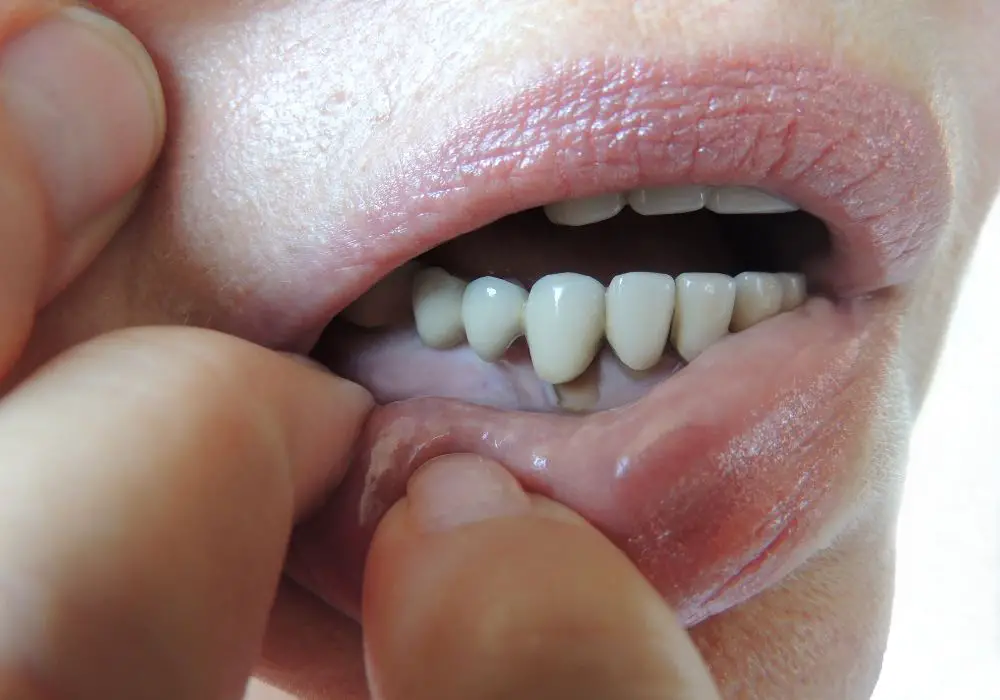
Q1: Is there a proven cause and effect relationship between gum disease and hypertension?
While a number of quality studies have found a strong association between gum disease and high blood pressure, more research is needed to conclusively confirm direct causation. Gum disease is considered an independent risk factor for hypertension, but the precise mechanisms are still being fully understood.
Q2: How quickly might blood pressure improve after getting treatment for gum disease?
Some studies have shown measurable drops in blood pressure readings within 2-3 months after intensive periodontal treatment. However, the overall effects on lowering blood pressure may take longer, over 6-12 months. It likely depends on the individual and severity of their gum disease.
Q3: Can fixing gum disease ever eliminate the need for blood pressure medications?
For the majority of patients, anti-hypertensive medications will still be required even after successful treatment of gum disease. Treating periodontitis may lower blood pressure to a certain degree, but likely not enough to totally control established hypertension without medication in most cases.
Q4: Is seeing a dental hygienist or periodontist better for gum disease treatment?
Dental hygienists can provide cleanings and help manage mild-moderate gum disease. But for more advanced periodontitis, visiting a gum specialist like a periodontist may be recommended. They have specialized training in treating severe gum disease.
Q5: Are natural remedies useful for lowering blood pressure caused by gum disease?
Some natural supplements like aged garlic extract have modest blood pressure reducing effects. They may provide some adjuvant benefits, but should not replace scientifically-proven hypertension treatments. More research is still needed on their efficacy.

